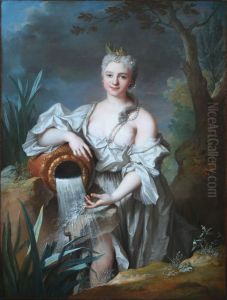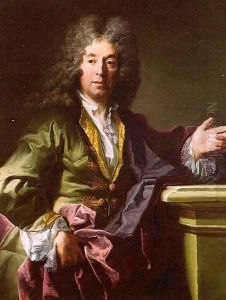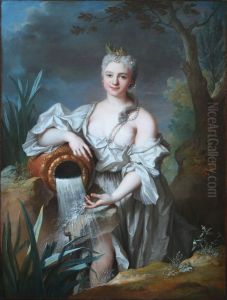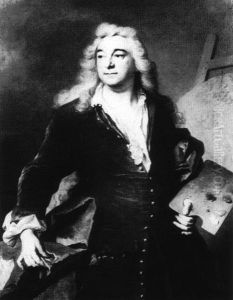Jacques-Francois Delyen Paintings
Jacques-François Delyen was a Flemish painter known for his portraits and religious compositions, born in 1684 in Ghent, which was then part of the Spanish Netherlands. He learned the fundamentals of painting in his hometown, and his talent was evident from an early age. Seeking to advance his skills and make a name for himself, Delyen moved to Paris, which was a major center for the arts in Europe, especially after the reign of Louis XIV, who was a great patron of the arts.
In Paris, Delyen was influenced by the works of contemporary French painters and the prevailing Rococo style, which was characterized by ornate grandeur and light-hearted themes. He developed a reputation as a skilled portraitist, capturing the likenesses and personalities of the Parisian elite. His work was appreciated for its elegance and attention to detail. Delyen's religious paintings also garnered attention, often commissioned by churches and religious institutions. These works demonstrated his ability to convey spiritual themes with emotional depth and artistic sensitivity.
Despite his success, Delyen's life is not extensively documented, and many details about his personal life and career remain unclear. However, his surviving works reflect the artistic trends of his time and provide insight into the cultural milieu of 18th-century Paris. Jacques-François Delyen died in 1761, leaving behind a body of work that, while not as widely recognized today as some of his contemporaries, contributes to the rich tapestry of Flemish and French art history.



